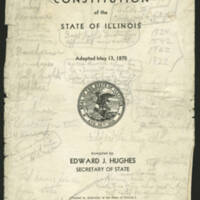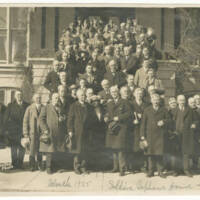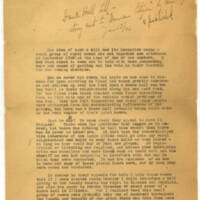A Woman’s Place is in The Senate
“State housekeeping is not different from other housekeeping.”— Florence Fifer Bohrer at candidate luncheon held at Bloomington, Illinois YWCA, March 11, 1924
The first and most famous piece of legislation that Florence Fifer Bohrer introduced as a freshman senator has come to be known as the “Dance Hall Bill.” Part of a fleet of protective, even conservative, social legislation put forward by the four female members of the 54th Illinois General Assembly, this bill aimed to shield rural youth from “the contaminating influences of the cities,” such as drunkenness and licentiousness. It received widespread favorable press coverage and passed easily because this was exactly what Illinoisans had elected Bohrer to do—bring her “mother’s heart” into the halls of power.
While it is true that at least to some extent Bohrer viewed her political service as an extension of her homemaking, it would be a mistake to underestimate her political savvy in continuing to position herself as a sort of angel of the home in the senate chamber. Throughout the 1920s, she continued to broaden and strengthen her legislative agenda by couching it in terms of “women’s issues.” She framed her career-long campaign to reform Illinois’ tax base by rewriting the state constitution, for example, as a bid to secure more equitable funding for education and child welfare. “Women [have] learned that every act of their lives is touched by [the] law of the land,” she said in a 1930s-era speech titled Why Women are Interested in Government. “[This is] true of home and church and school, birth to death.” Besides, she laughed, “w[e] are used to watching the pennies.”



